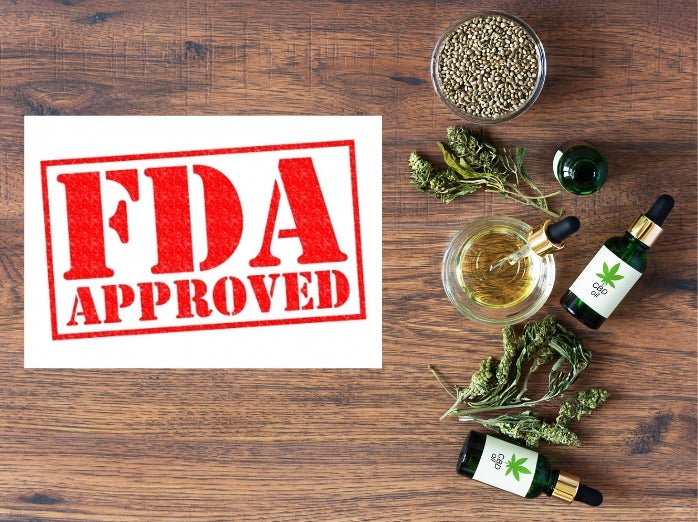With Minnesota on the precipice of becoming the 23rd state to legalize adult-use marijuana, the competition to not get left behind in the big business of legal cannabis is heating up.

The American economy and its very socioeconomic and cultural structures are in a precarious place as the 21st century nears its one-quarter mark. With Corporate stalwarts like Amazon, Facebook, Google, Twitter, and other tech giants laying off tens of thousands, while false business titans from the crypto world steal and destroy billions in hard-earned capital from investors, economists, and workers searching for new jobs or careers are in dire need of veritable "knight on a white horse" to come and save the day.
For the first two decades of this century, the genius whiz kids of Silicon Valley created innovative companies designed to provide goods and services at the tap of a smartphone app. They also generated massive profits and wealth for their employees and stock market investors. However, as with most boom periods in American history, the jig is up, and the reality bill has come due.
Moreover, with the manufacturing sector all but completely outsourced to companies in China and South America, a solid and sustainable industry that produces a product that millions desire at an affordable yet profitable price point seems as elusive as getting a live and breathing human on a customer service call.
The answer, or at least one of the potential answers, may lie in a plant that has been vilified and criminalized for almost a century in this country. It has been over ten years since Colorado and Washington legalized adult-use marijuana for their citizens. In the ensuing decade, over twenty additional states joined the movement to legalize recreational cannabis for adults 21 and older.
Last week lawmakers in the Minnesota House and Senate passed a measure to make the "Land of 10,000 Lakes" the 23rd state to pass cannabis legalization reform in the United States. With Gov. Tim Walz (DFL) promising to sign the bill into law following the Memorial Day Weekend holiday, Minnesota will begin licensing retail dispensaries sometime next year to begin selling legal and regulated marijuana to Minnesotans who overwhelmingly approve of the decision to end prohibition in their state.
However, it is not just the progressive voters in Minnesota who want safe, legal and easily accessible cannabis. According to a Pew Research Center survey conducted Oct. 10-16, 2022, 88% of adults interviewed said that marijuana should either be legal for medicinal and recreational use for those 21 and older (59%) or that it should be legal for medical use only (29%). Just 10% said cannabis should remain illegal.
In addition to the significant poll numbers, there is a solid economic case for ending the federal ban on marijuana. Projections for legal recreational cannabis sales in the U.S. indicate that by 2025 revenue will exceed $25 billion in those states where it is legal (Statista). That same analysis projects that there will be over 50 million American consumers of legal marijuana by 2025 as well.
However, the full impact of a potential nationwide cannabis market could be even more significant when considering other factors such as tax revenue, job creation, investment opportunities, and reducing the costs associated with maintaining prohibition.
Tax Revenue
In states where recreational marijuana is legal, the proceeds from tax revenue have been significant. For example, as of March 2022, states with legal and regulated adult-use cannabis markets collected over $11.2 billion from taxing the sale of recreational marijuana, with $3.7 billion collected in 2021 alone.
That year, Washington collected $559.5 million from legal cannabis tax revenue, while Colorado received $423 million. Many states use that newfound income to bolster their budgets and fund essential programs and services.
Jobs
According to New Frontier, a marijuana analytics company, if federal prohibition were to end, allowing for full legalization across all 50 states, an additional 654,000 jobs could be added to the overall job market. That number could exceed one million by 2025.
The popular careers in this field include growers, budtenders, lab technicians, couriers, compliance specialists and web developers. Other tangential industries that could benefit from a job creation standpoint include real estate and construction.
Investment
By removing the shackles of federal prohibition, marijuana businesses would have the ability to go public and sell their stocks on various American exchanges. National legalization could provide a massive jolt of investment capital and liquidity to help the industry expand exponentially. In addition, it would allow investors to diversify their portfolios and increase their overall value.
The Cost of Prohibition
The cost of enforcing marijuana prohibition on a national level is substantial. According to prisonpolicy.org, national criminal justice expenditures for enforcing cannabis laws are $7.6 billion annually, with $3.7 billion allocated to policing, $853 million to the courts, and $3.1 billion to corrections.
In ending the federal ban, that money could be repurposed to fund programs designated to help those groups (predominantly minority populations of color) most adversely affected by the ill-conceived and brutally enforced war on drugs.
Advocates for full federal legalization have been banging the drum to end the prohibition for over 25 years. With now almost half of the states in the union legalizing adult-use cannabis and close to 80% with medicinal programs, it is well past time to end the outdated policy of marijuana receiving the same treatment as hard narcotics like heroin and cocaine.
Furthermore, with the American economy teetering and in desperate need of creative and reliable opportunities to bolster its prolonged slump, marijuana might be the very hero this country needs.







































